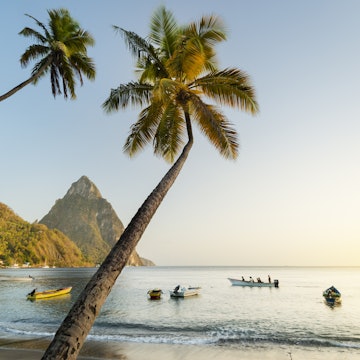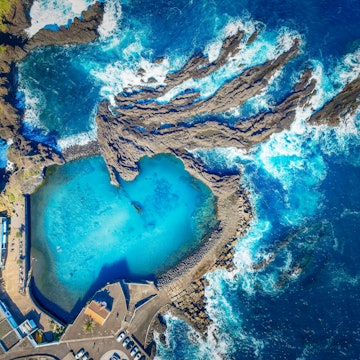
13 things you need to know before visiting Portugal



Évora's fortress-like medieval cathedral in Portugal's Alentejo region. Sergii Figurnyi/Shutterstock
I’ve lived in Portugal for four years, and had been visiting the country for nearly a decade before I moved here. During this time, I’ve come to associate the nation with one word in particular: pleasant. The people are pleasant, the weather is pleasant, the food is pleasant. All that is to say that Portugal is a pretty easy country to travel in. But there are a few things to know in advance that will make your trip to Portugal smarter, more enjoyable and yes, pleasanter.

Planning for your trip to Portugal
1. Don’t try to see it all in one trip
Portugal is a small country – roughly the size of the state of Indiana in the United States and slightly larger than Scotland. But there’s a lot to see here, from hilltop villages in the Alentejo to remote UNESCO World Heritage sites, not to mention over 100 beaches in the Algarve.
A rookie mistake is trying to see all of Portugal during one visit. Even if you have a few weeks to spare, you won’t be able to visit everything in this small but diverse country. Instead, pick one or two regions and focus your trip there, allowing time to see highlights as well as local markets, vineyards and other less-visited attractions.
2. Book your accommodations well in advance
Portugal’s popularity means some of the best places to stay get booked up months in advance. This is especially true if you’re traveling in the peak months of June through August. Once you have your itinerary organized, reserve your lodging. If you’re traveling in the low season (November through March), you’ll have much more flexibility – book your first few nights and plan your other nights on the go.
3. Don’t miss the islands
For such a small country, there’s a lot to see, and this includes Portugal’s amazing islands, highlight of the country that are unfortunately neglected by most travelers. If you can squeeze it in, consider a side-trip to Madeira, the dramatically rugged, semi-tropical island off the coast of western Africa, or to the nine green islands in the middle of the Atlantic that constitute the Azores. Flights to the archipelagoes are frequent and aren’t necessarily expensive, and day-to-day costs are only slightly higher than those on “the continent,” as mainland Portugal is referred to on the islands.

4. Prepare yourself for hills
The Portuguese seemed to have chosen the hilliest locations when establishing their cities, presenting a challenge for even the most experienced urban explorers. While in Portugal, you’ll likely find yourself scaling a steep slope simply to reach your hotel, or stopping to catch your breath while en route to lunch. A couple weeks of pre-trip step-training or hill walking is not a bad idea if you don’t want to have sore calves during your stay.
Given this challenging topography, it also pays to have good shoes. In addition to steep hills, you’ll find loose cobblestones and uneven sidewalks in Lisbon, Porto, Coimbra and many other towns. Save the heels and dress shoes for nicer restaurants and nightclubs. Good shoes will also come in handy when you want to take a walk beyond the town.
5. Be aware of rail strikes
In recent years, CP, Portugal’s rail service, has been subject to frequent strikes. If you’re planning an extensive train journey in the country, be sure to check the website in advance for disruptions in service. Frequent strikes are also the case with Lisbon’s Metro; you’ve been warned.
6. Cash still rules in Portugal – sometimes
Although generally speaking it’s easy to tap and pay with a credit or debit card across much of Portugal, there are occasionally machines that only accept local cards, and many small businesses still only deal in cash, which means you’re advised to carry some euros.
7. Don’t forget to throw in a swimsuit
No matter where you roam in Portugal, you’re never far from the beach or a sparkling inland lake or river. Porto and Lisbon both have lovely beaches within easy reach of the city centers, while remote corners of Portugal – like Parque Nacional da Peneda-Gerês – have waterfalls and natural pools. It would be a mistake not to bring your swimsuit, even if you think you won’t need it.

Etiquette in Portugal
1. Portugal is not Spain and Portuguese is not Spanish
Yes, Portugal has much in common with its neighbor to the east, but it has been an independent kingdom since 1143 – Portugal is generally considered the oldest country in Europe – and has its own unique culture and language. When in Portugal, don’t expect tapas, or flamenco, or paella, or for people to understand your Spanish. Indeed, you’ll get much farther in Portugal if you speak English, which is understood nearly universally, rather than Spanish, the speaking of which can sometimes be seen as culturally insensitive.
2. Be aware of the cost of living
Although Portugal may seem inexpensive – costs here are indeed lower than much of the rest of western Europe – its salaries are also much lower. Portugal’s minimum wage is a scant €870 per month, its average monthly wage €1463, both of which are being squeezed due to a housing crisis in larger cities. Before you go on in public or on social media about how cheap that meal was, an act that is likely to be perceived as incredibly insensitive by locals, remember that it’s all relative.
3. The starters are not free
At restaurants in Portugal, servers often bring bread, butter, olives and even cheese or other appetizers to diners before their meal. These unsolicited starters are known as couvert, and they will be added to your bill if you eat them. If you don’t want them, just send them away – a polite "no, thank you" (não quero, obrigado/a) will do the job.

Safety and scams in Portugal
1. Portugal is safe, but be a smart traveler
Portugal is generally a safe country to visit with a low overall crime rate – violent crime in particular is extremely rare. That said, pickpocketing does occur, especially on public transport and in tourist areas. Car break-ins can also happen, and rental vehicles are frequently targeted. Don’t leave anything of value in your car, and it's best not to leave luggage or other items in the trunk of your vehicle either.
2. Sidewalks are a slip and trip hazard
The early founders of Portugal’s urban areas clearly opted for beauty over safety when designing the country’s calçadas, or tiled walkways. Many cobbled stretches are indeed handsome but are slippery on the best of days and are downright ice-like when wet. Combine this with so many steep streets, and the simple act of walking can be pretty intimidating. I’ve slipped on several occasions, and have seen numerous others go down. Opt for grippy shoes and take it slow, especially if it’s raining.
3. Avoid taxi scams at Lisbon’s airport
For years now, taxi drivers at Lisbon’s airport have been simply ignoring their meters and are instead charging a flat fee – typically €35, more than twice the going rate – to enter town. You can ask drivers to confirm that they’ll use the meter before you get in the taxi, but this doesn’t always work and can lead to confrontations. Until the authorities choose to crack down on this scam, the best option is to use a ride service – Uber and Bolt are the most common – or the Metro.















